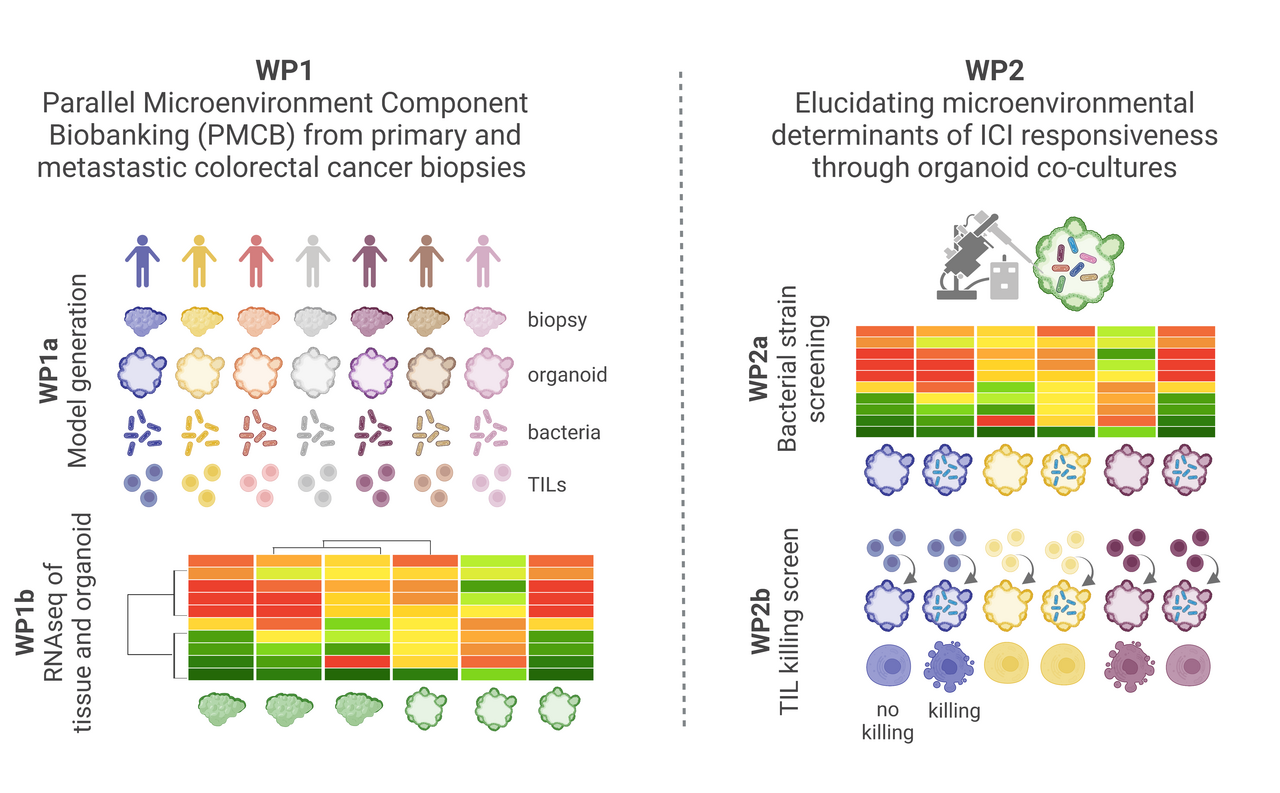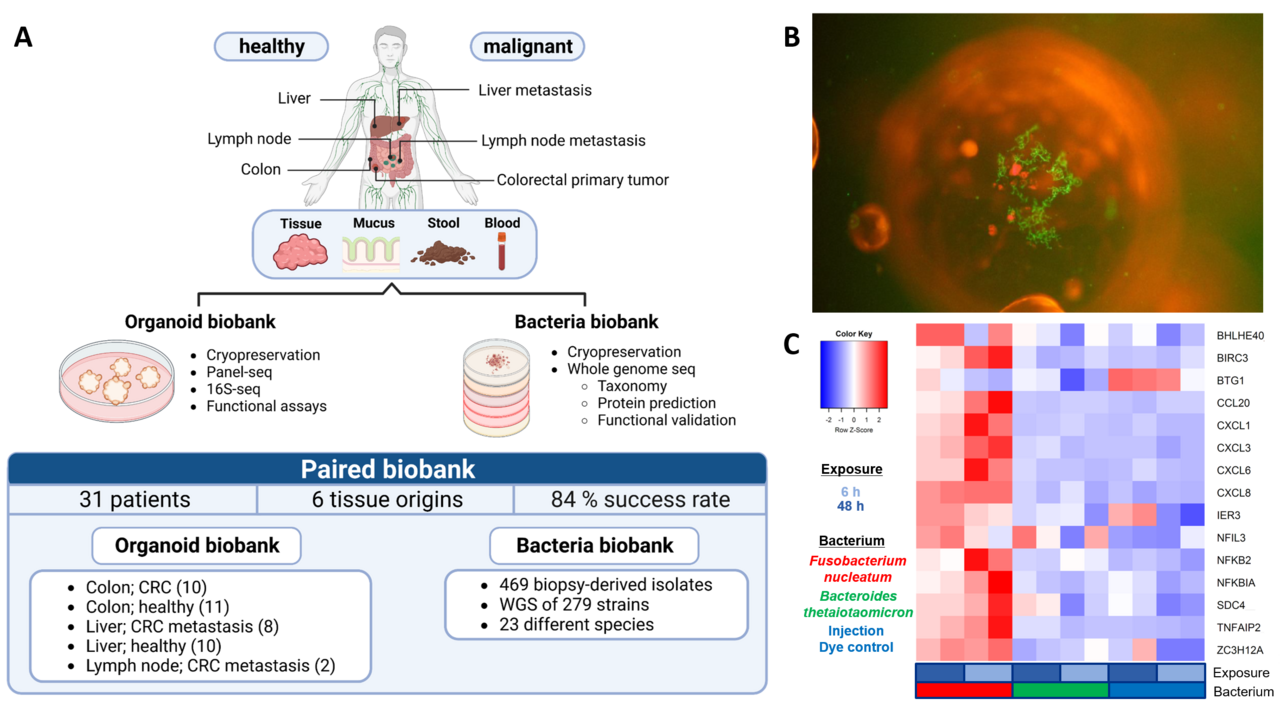Seed Funding Program 2022
COMPAS
Microbial roles for immunotherapy efficacy in colorectal cancer
Coordinators

Nuh Rahbari
Surgical Clinic, UMM
 dkfz.de
dkfz.de
Jens Puschhof
Microbiome and Cancer, DKFZ
Detailed description
Recent treatments that boost the body's natural defenses against cancer (called Immune Checkpoint Inhibition or ICI) have shown promising results for a specific type of colon cancer. However, they seem to work better on early-stage cancers than on advanced ones, and it is not entirely clear why. Some studies hint that bacteria living inside tumors could play a role in how well these treatments work.
To explore this, special 3D cultures called 'organoids' that act like mini-tumors are being using. These mini-tumors are grown with bacteria from both early-stage and advanced cancers. By studying how they interact, especially how triggers for the immune system become activated or blocked, the role of these bacteria will be understand better. It will also be tested how immune cells respond to these mini-tumors when exposed to bacteria and treatments.
This research will give more knowledge about the relationship between bacteria and cancer treatments, and also guide on how to set up these special 3D cultures for future clinical studies.
Figure 1: Project overview. Based on a living biobank of tumor organoids, bacteria and immune cells, new insights into the interaction of tumor-resident bacteria and cancer immunotherapy will be achieved.
Figure 2: Overview of the COMPAS project progress. A) Based on primary and metastatic colorectal cancer biopsies, a living biobank of organoids and bacterial strains was established. B) Fluorescence micrograph after injection of green labeled bacteria into a red labeled organoid. C) Transcriptome analyses show marked expression of pro-inflammatory cytokines after exposure to Fusobacterium nucleatum.

